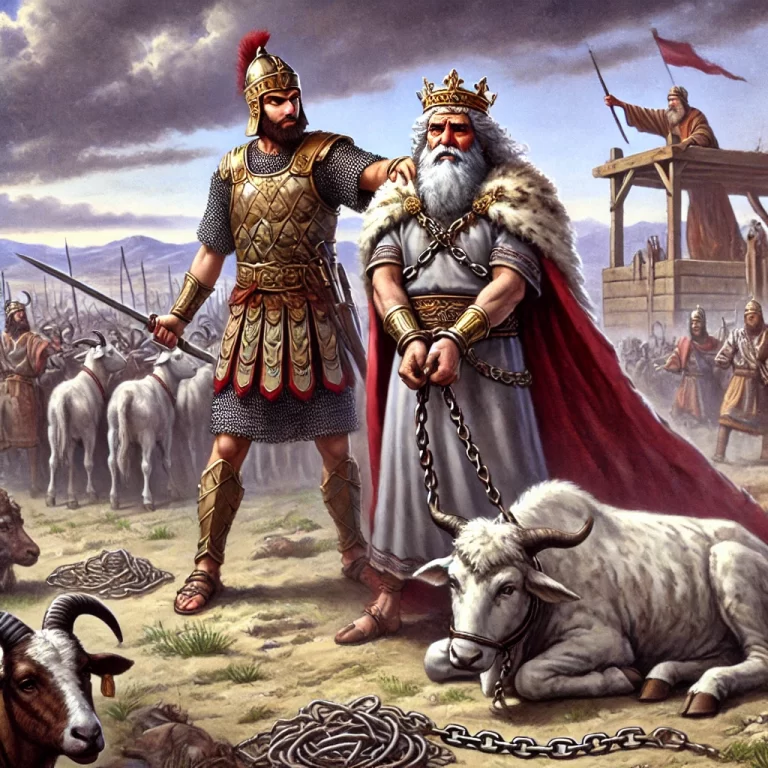Introduction.
1 Samuel Chapter 15 presents a turning point in the reign of King Saul. In this chapter, Saul is given a clear command by God to completely destroy the Amalekites and all they possess. However, Saul disobeys by sparing King Agag and keeping the best of the livestock. This act of disobedience results in Saul’s rejection as king by God, and the chapter serves as a profound reminder of the importance of complete obedience to God’s commands.
God’s command to destroy the Amalekites.
The chapter begins with Samuel delivering God’s instruction to Saul: he is to completely destroy the Amalekites, their king, and all their possessions. This command is rooted in the Amalekites’ long history of hostility towards Israel. Saul gathers his army and successfully defeats the Amalekites, but instead of following through with God’s command, he spares King Agag and allows his soldiers to keep the best livestock under the pretense of offering sacrifices to God.
Saul’s disobedience and excuses.
When Samuel confronts Saul about his disobedience, Saul initially defends his actions. He claims that the people spared the best sheep and cattle to sacrifice to God, but Samuel makes it clear that obedience is more important than sacrifice. Samuel’s famous words—“To obey is better than sacrifice, and to heed is better than the fat of rams”—underscore the principle that God values obedience over religious rituals.
Despite Saul’s attempts to justify his actions, Samuel informs him that God has rejected him as king. Saul’s disobedience was not merely a mistake; it was a willful choice to act against God’s direct command. Samuel, in a symbolic act of judgment, hacks King Agag to pieces and departs, leaving Saul to face the consequences of his actions.
Key lessons from 1 Samuel chapter 15.
- The importance of complete obedience: Saul’s downfall came from his partial obedience. This chapter teaches that we cannot choose which parts of God’s commands to follow; true obedience requires complete submission to God’s will.
- Obedience over rituals: Samuel’s statement that obedience is better than sacrifice reminds us that God desires our hearts and obedience more than external religious practices. True worship begins with a heart that is fully aligned with God’s will.
- The consequences of disobedience: Saul’s disobedience cost him the throne, showing that defying God’s commands can lead to severe consequences, not only for ourselves but also for those we lead.
Conclusion.
1 Samuel Chapter 15 serves as a powerful reminder of the importance of complete obedience to God. Saul’s decision to partially obey God’s command resulted in his rejection as king and marked the beginning of his downfall. As we reflect on this chapter, let us remember that true obedience comes from a heart that seeks to honor God in all things, not just in part.






